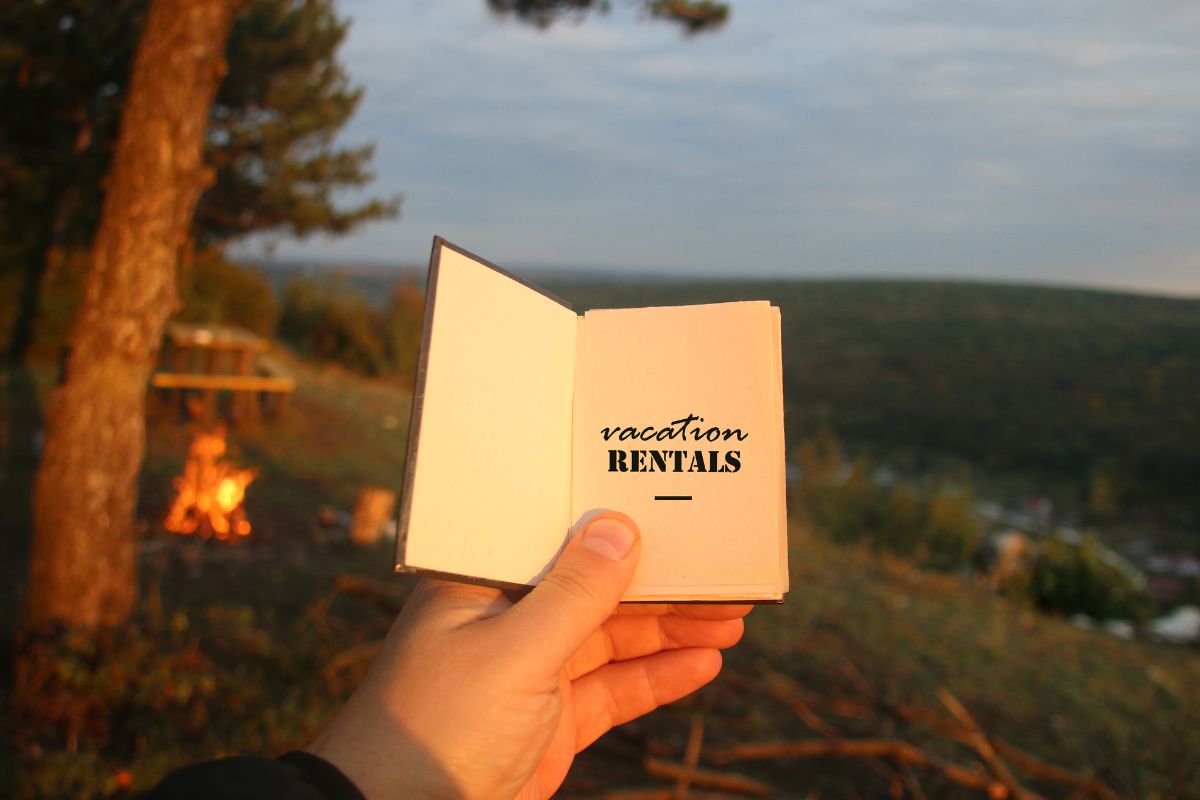Maintaining operational costs is a constant challenge for property managers who handle a large volume of short-term rentals. Every decision can impact your bottom line—whether it’s how many staff you hire, how you streamline daily operations, or even how you manage utilities.
The good news is, by optimizing each area, you can significantly reduce costs without sacrificing the quality of your guest experience.
Optimizing Staffing Costs
Staffing is one of the biggest expenses for property management, especially when dealing with multiple properties.
Adjusting Staffing Levels
To cut unnecessary costs, it’s important to make sure your staffing levels match the actual demand. One effective approach is to adjust staffing needs based on seasonal trends. Instead of maintaining a large permanent team year-round, consider hiring part-time or temporary staff during peak seasons when demand is highest. This way, you’ll only pay for the hours you need.

Cross-Training Your Team
Additionally, cross-training your team can be a game changer. Training employees to perform multiple tasks—like cleaning, guest communication, and minor maintenance—can reduce the need to hire additional staff.
It also increases flexibility in case of staff absences, helping you avoid the chaos of being short-staffed.
Leveraging Automation
Automation is another key tool for reducing staffing costs. Many tasks like guest communication, check-ins, and check-outs can be automated through property management software. This reduces the need for a large front-desk or administrative team.
Automated guest screening services like Autohost can also save countless hours by handling guest verification and flagging high-risk reservations. It allows your staff to focus on more high-priority tasks.
Outsourcing Non-Core Tasks
Outsourcing non-core tasks, such as cleaning or maintenance, can further cut down on staffing overhead. By using reliable third-party vendors, you’ll avoid the fixed costs of full-time employees, paying only for the services you need. With the right property management system in place, you can easily manage vendor schedules, track performance, and ensure you’re getting the best rates.
Streamlining Property Management Operations
Efficiency is everything when managing multiple rental properties.
Centralizing Property Management
Implementing a centralized property management system (PMS) is essential for reducing operational complexity. A PMS can consolidate everything from booking management to payments, maintenance requests, and even guest communication. When all your data and operations are centralized, it reduces manual errors, saves time, and ensures nothing slips through the cracks.
Automating Guest Screening
Guest screening is one area where automation can deliver massive savings. Manual guest verification can be time-consuming and prone to errors, especially when juggling dozens of reservations. With tools like Autohost, you can automate the entire process, ensuring every guest is properly vetted without the need for human oversight. This reduces the risk of property damage or troublesome guests while saving your team hours of work.
Standardizing Operations
Standardizing your operations across all properties can also help streamline workflows and cut costs. This includes creating standardized checklists for cleaning, inspections, and guest check-ins, ensuring every property is maintained to the same standard.
When your team follows the same procedures for each property, you eliminate inefficiencies, reduce rework, and ensure guests receive a consistent experience no matter which property they book. This also makes it easier to onboard new team members or vendors since they’ll follow the same set of instructions for all tasks.
Managing Utility and Maintenance Costs
Utilities and maintenance costs can quickly add up when managing multiple properties.
Investing in Smart Home Technology
One way to control these expenses is by investing in smart home technology, such as energy-efficient thermostats, motion-sensor lighting, and water-saving appliances. With smart thermostats, you can control the temperature remotely even when a property is vacant or guests don’t adjust it.
Motion-sensor lights can prevent unnecessary energy use in common areas or spaces that aren’t used frequently, while water-saving fixtures help keep utility bills in check.
Proactive Maintenance
Proactive maintenance is another cost-saving strategy that can prevent small issues from turning into expensive repairs. Scheduling regular inspections and routine maintenance ensures that potential problems are addressed before they escalate.
By using property management software, you can automate maintenance scheduling, track costs, and ensure all necessary repairs are completed on time.
Bulk Purchasing
Bulk purchasing is another effective way to reduce maintenance and supply costs. Instead of buying cleaning supplies, toiletries, and consumables in small quantities, consider ordering in bulk to take advantage of wholesale pricing.
Maintaining a well-organized inventory system is also important to prevent over-ordering or running out of essential items, which can lead to emergency purchases that often cost more.
Efficient Marketing and Booking Strategies
When managing multiple properties, marketing can quickly become a major expense if you’re not careful. The good news is, you can optimize your marketing to reach the right guests while cutting costs in the process.
Maximizing Direct Bookings
A key strategy is maximizing direct bookings. Third-party platforms like Airbnb and Booking.com come with hefty fees, so building your own booking platform can help you keep more revenue.

An easy-to-use website gives you more control over the booking process and can offer special discounts for direct bookings, such as reduced rates for repeat guests.
Optimizing Your Listings
Optimizing your listings across all platforms is equally important. This means making sure your property descriptions are clear, engaging, and highlight unique features that make your rentals stand out. Don’t skimp on professional photos either—high-quality images can significantly boost your listing’s visibility.
Also, dynamic pricing tools allows you to automatically adjust your rates based on demand. This ensures you stay competitive without the need for constant manual updates. The approach can boost occupancy rates while reducing vacancies.
Targeting the Right Guests
Lastly, targeting the right guests can make your marketing more cost-effective. Instead of casting a wide net, focus on the types of guests that are the best fit for your properties—whether that’s families, business travelers, or vacationers.
Tailoring your marketing campaigns to reach these specific groups will help you fill vacancies faster and reduce expensive ads for the wrong audience. Running smaller, more focused ad campaigns can yield better results without blowing your marketing budget.
Improving Guest Experience Without Extra Costs
Providing a great guest experience doesn’t always require a huge investment. In fact, small, thoughtful touches can go a long way.
Leveraging Technology for Personalized Communication
Technology can play a big role here, especially in personalizing communication with guests. Automated messaging tools allow you to send personalized welcome messages, local recommendations, or updates about their stay without taking time out of your day. This makes guests feel valued without requiring extra staff or manual work.
Setting Clear Expectations
Setting clear expectations from the start is another way to improve guest satisfaction while minimizing costs. Communicate house rules, check-in/check-out procedures, and available amenities through automated messages. This lets you prevent misunderstandings that might lead to complaints, bad reviews, or damage to your property.
Guests are less likely to feel frustrated or disappointed when they know what to expect.
As a result, it leads to better reviews and less stress for you.
Encouraging Longer Stays
Encouraging longer stays is a win-win for both you and your guests. Offering discounts for extended stays can increase occupancy, reduce turnover costs, and cut down on cleaning and administrative tasks. Longer bookings mean fewer check-ins, fewer cleanings, and less overall wear and tear on your property. Plus, you’ll spend less time and money finding new guests to fill short-term vacancies.
Streamlining Compliance and Legal Requirements
Staying compliant with local regulations and tax requirements can be a major headache, but falling behind can cost you far more in the long run.
Managing Tax Obligations
Keeping track of tax obligations and local laws is a must for high-volume property managers, and the easiest way to manage it is by using software tools designed to track and report taxes accurately. Automating tax reporting ensures you’re always in compliance, reducing the risk of costly errors, missed deadlines, or fines.
Guest Identification and Verification
Another critical aspect of compliance is guest identification and verification, especially in areas with strict regulations regarding short-term rentals. Manually verifying guest identities is not only time-consuming but can also lead to mistakes. Automated tools, like those offered by Autohost, can streamline this process, ensuring you stay compliant with local laws without adding extra work to your team. By automatically verifying IDs and flagging potential risks, you can keep your properties safe while reducing the risk of fraud or liability issues.
Staying Informed About Local Regulations
Lastly, staying informed about local regulations is key to avoiding penalties or legal troubles. Short-term rental regulations can vary widely by location, and they’re constantly evolving.
Make it a priority to stay up-to-date on any changes that could affect your business, whether it’s occupancy limits, licensing requirements, or new taxes. Staying proactive about compliance helps you avoid unexpected fees and ensures your business runs smoothly.
Leveraging Technology to Optimize Operations
Investing in smart home technology is one of the simplest ways to cut costs across your properties.
Leveraging Smart Home Technology
Devices like smart locks, thermostats, and motion sensors allow you to control energy use remotely and secure your rentals more efficiently. For example, smart thermostats automatically adjust the temperature when guests leave, ensuring you’re not paying for heating or cooling an empty space.
Keyless entry systems are another great tool that reduces the need for staff to be physically present during check-ins. Guests can access the property anytime, and you can manage it all from a central platform.
Making Data-Driven Decisions
Another major advantage of technology is the ability to make data-driven decisions. Using property analytics can help you monitor performance, track guest feedback, and identify areas for improvement. This gives you the power to adjust your pricing strategy, optimize cleaning schedules, and even spot trends in guest preferences. The more data you have, the easier it is to find opportunities to cut costs and boost revenue.
Implementing Dynamic Pricing
Dynamic pricing tools are another must-have for high-volume rental managers. These systems automatically adjust your rates based on demand, seasonality, and competition, ensuring you’re always priced competitively.
You won’t need to spend hours manually changing prices, and you’ll maximize your occupancy rates by staying ahead of market trends. This is especially useful for balancing low and high seasons, keeping your income steady year-round.
Risk Management and Reducing Liability
Every rental business comes with risks, but you can minimize them by being proactive. One of the biggest risks is property damage or having guests who cause trouble.
Strict Guest Screening
Implementing strict guest screening is an easy way to reduce that risk. Thorough guest screening can weed out potential problem guests before they even step foot in your property.
Automated tools like Autohost make this process seamless, flagging high-risk reservations based on certain criteria. This not only protects your property but also helps prevent fraud, chargebacks, and legal issues.
Adequate Insurance Coverage
Having the right insurance in place is also critical for reducing liability. Make sure your properties are adequately covered, but avoid paying for coverage you don’t need. Review your policies regularly to ensure they’re still the best fit for your business as it grows.
You might also want to explore options specifically designed for short-term rentals, which can provide tailored protection at a better price.
Clear Damage Policies
Lastly, having clear damage policies in place helps protect you financially. Outline these policies upfront, and ensure your guests understand the terms regarding security deposits and potential damage fees. Using automation to handle deposits and refunds will save time and reduce disputes. The smoother this process is, the less likely you are to face issues down the road.
Reducing operational costs as a high-volume rental manager comes down to being smart about your processes. Whether it’s leveraging technology, optimizing staffing, or managing risk, every step you take toward streamlining operations will help your business run more efficiently and profitably.
Autohost’s AI-powered tenant screening system flags high-risk reservations, enabling you to book credible and trustworthy clients. Don’t take our word for it. Try Autohost today!

